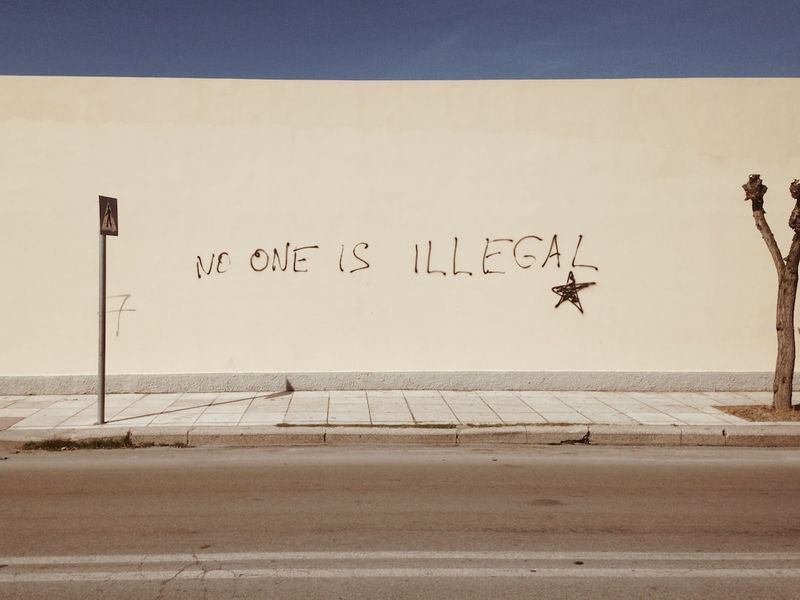Mark Rutte: Dutch Coalition Government Collapses in Migration Row
The Dutch government has collapsed due to a disagreement between coalition parties over asylum policies, according to Prime Minister Mark Rutte. The four parties were unable to find agreement in crisis talks chaired by Mr Rutte on Friday. The government was established a year and a half ago, but the parties have been at odds on migration for some time.
Crisis Talks and Government Collapse
Prime Minister Rutte met with King Willem-Alexander in The Hague to discuss the formation of a caretaker administration after the collapse of the coalition government. Although the details of their discussion remain confidential, Mr Rutte stated that it was a productive conversation. Local media outlets have reported that fresh elections will likely be held in mid-November.
The collapse of the government stems from Prime Minister Rutte’s attempt to limit the flow of asylum seekers, following a heated dispute last year regarding overcrowded migration centers. His conservative VVD party proposed a plan that included capping the number of relatives of war refugees allowed into the Netherlands at just 200 people per month. However, this plan faced strong opposition from his junior coalition partners, the Christian Union and the socially-liberal D66 party.
In a news conference on Friday evening, Prime Minister Rutte confirmed the government‘s collapse. However, he assured that the ministers would continue their work as a caretaker cabinet until the new elections take place.
Divergent Views on Migration
Asylum applications in the Netherlands surged by over a third last year, totaling more than 47,000. Government projections suggest that there will be approximately 70,000 applications in 2023. Prime Minister Rutte sought to force through his plan to restrict asylum seekers, but the junior coalition partners strongly disagreed.
The differences in views between the coalition partners were deemed irreconcilable by Prime Minister Rutte. He acknowledged the difficulty of the decision and stated that “all parties went to great lengths to find a solution, but the differences on migration are unfortunately impossible to bridge.”
Rutte’s Political Future and Rise of Far-Right Parties
Prime Minister Rutte, 56, is the longest-serving prime minister in the country’s history, having been in office since 2010. The collapse of the government places his policies on migration under scrutiny due to the rise of far-right parties, including Geert Wilders’ PVV.
The Farmer-Citizen Movement (BBB), which became the largest party in the upper house of parliament after a surprise election victory in March, has stated that they will not serve in any future government led by Mr Rutte. This rejection further underscores the challenges the prime minister may face in forming a new coalition government.
Editorial: Navigating the Politics of Migration
The collapse of the Dutch coalition government highlights the political challenges that arise when attempting to address migration issues. Asylum policies often evoke strong emotions and differing perspectives, making it difficult for coalition governments to find common ground and reach viable solutions.
The dispute between Prime Minister Rutte’s conservative VVD party and his junior coalition partners exposes the delicate balance between managing the flow of asylum seekers and respecting humanitarian values. While policies aiming to limit immigration might be designed to address concerns about limited resources and national security, they can clash with the principles of inclusion and human rights.
The rise of far-right parties, such as Geert Wilders’ PVV, further complicates the political landscape, pushing policymakers to take strong stances on migration to appeal to their voter base. This dynamic creates additional challenges in building stable and cohesive governments that can effectively address complex issues like migration.
Finding a Balanced Approach
The collapse of the Dutch coalition government serves as a reminder that there is no easy solution when it comes to managing migration. It requires a careful and nuanced approach that values both the well-being of the host nation and the dignity of individuals seeking refuge.
Rather than pursuing strict restrictions or complete openness, policymakers should explore comprehensive and evidence-based approaches to migration. This involves adequately addressing the underlying factors that drive migration, such as conflicts, economic disparities, and climate change, while also ensuring fair and efficient asylum processes.
International collaboration is vital in addressing migration challenges. Cooperation between countries, particularly in the European Union, can help distribute the responsibility and share the burden of hosting and integrating asylum seekers. A unified approach to migration policies can also help reduce the strain on individual countries while upholding the principles of solidarity and compassion.
Advice for Future Government
As the Netherlands prepares for fresh elections and the formation of a new government, there are important considerations to keep in mind when addressing migration issues.
Inclusive Dialogue and Compromise
Acknowledging the divergent views within coalition governments is crucial. Constructive and inclusive dialogue among coalition partners, as well as stakeholder engagement, can help identify areas of agreement and facilitate compromise. Transparent decision-making processes that involve public consultation and expert input can help build trust and legitimacy.
Holistic and Long-Term Approach
Migration requires a long-term perspective that goes beyond short-term policy goals. Governments should invest in comprehensive integration programs that promote social cohesion and economic sustainability for both host communities and refugees. This includes language training, access to education and employment opportunities, and support for cultural diversity.
International Cooperation
Recognizing migration as a global challenge, the Dutch government should actively engage in international partnerships to address the root causes of forced displacement. By collaborating with other nations, the Netherlands can contribute to finding sustainable solutions that benefit both host countries and asylum seekers.
Conclusion
The collapse of the Dutch coalition government over migration policies underscores the complexity of the issue and the challenges faced by policymakers. As the Netherlands moves forward, it should strive to find a balanced and comprehensive approach to migration, one that upholds both national interests and humanitarian values. By engaging in inclusive dialogue, adopting holistic policies, and embracing international cooperation, the Netherlands can navigate the politics of migration in a way that promotes social harmony and ensures the protection of vulnerable individuals.

<< photo by Miko Guziuk >>
The image is for illustrative purposes only and does not depict the actual situation.
You might want to read !
- Taylor Lautner Surprises Audience by Joining Taylor Swift for a Memorable Moment on the 'Eras' Tour
- A Champion’s Farewell: Michelle Wie West Bids Adieu with a Stellar 30-foot Putt at U.S. Championships
- Raptors’ Summer Surprises: Markquis Nowell and Moses Brown Shine
- “Politicians Call for Enhanced Policing of Drug Dealers, but Experts Urge Caution and Focus on Prevention”
- Toronto Mayoral Election: Decisive Day for the City’s Future
- Biden-Modi State Visit: Strengthening Ties Between the US and India
- “Battling Back: Former Goalie Van der Sar’s Intensive Care Journey”
- Breaking Barriers: Shane Van Gisbergen’s Historic NASCAR Debut Victory
- Shane Van Gisbergen Makes Canadian Racing History With First Debut NASCAR Win
- “Unity in Diversity: Canadians Celebrate National Identity and Liberties on Canada Day”
- Lower Mainland Canada Day celebrations reimagined with spirit of unity and resilience
- Canada Day at a Crossroads: Reconciliation Sparks National Soul-Searching
- “Britney Spears Accuses Security Guard of Assault, Raising Concerns About Celebrity Safety”
- Battle Lost: The TTC’s Failed Expansion Plans in All Directions
- Josée Bélanger: Une voix inspirante pour le soccer canadien – Une entrevue exclusive sur sa carrière olympique et son impact sur les jeunes joueurs
- “Victim in Critical Condition: Police Hunt for Suspect in Onboard Stabbing Attack”
- A Royal Affair: Exploring Love and Politics in ‘Red, White & Royal Blue’
- Justin Trudeau invites Taylor Swift to tour Canada: A cross-cultural collaboration in the making
- “Man of Steel, Grown-Up Appeal: Exploring Adult Swim’s Reimagining of Superman in ‘My Adventures With Superman’”
- “No Survivors in Tragic Highway 40 Accident: Uncovering the Devastating Aftermath”
- What are cluster munitions? Biden defends decision to send …
“Unmasking the Lethal Truth: Understanding Cluster Munitions and Biden’s Controversial Defence”
- Edwin van der Sar in Critical Condition After Brain Hemorrhage – ESPN
- The Unsettling Persistence of Antisemitism in Germany: Examining the Rise of Right-Wing Extremism




